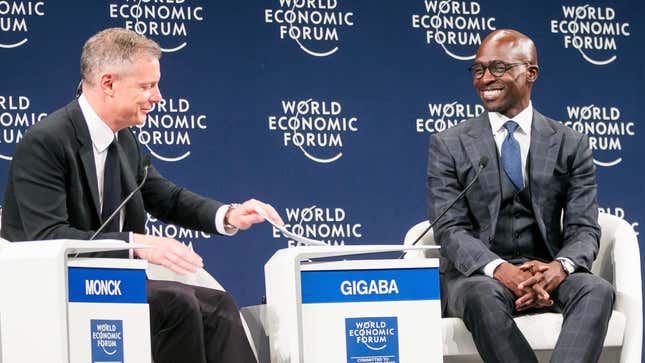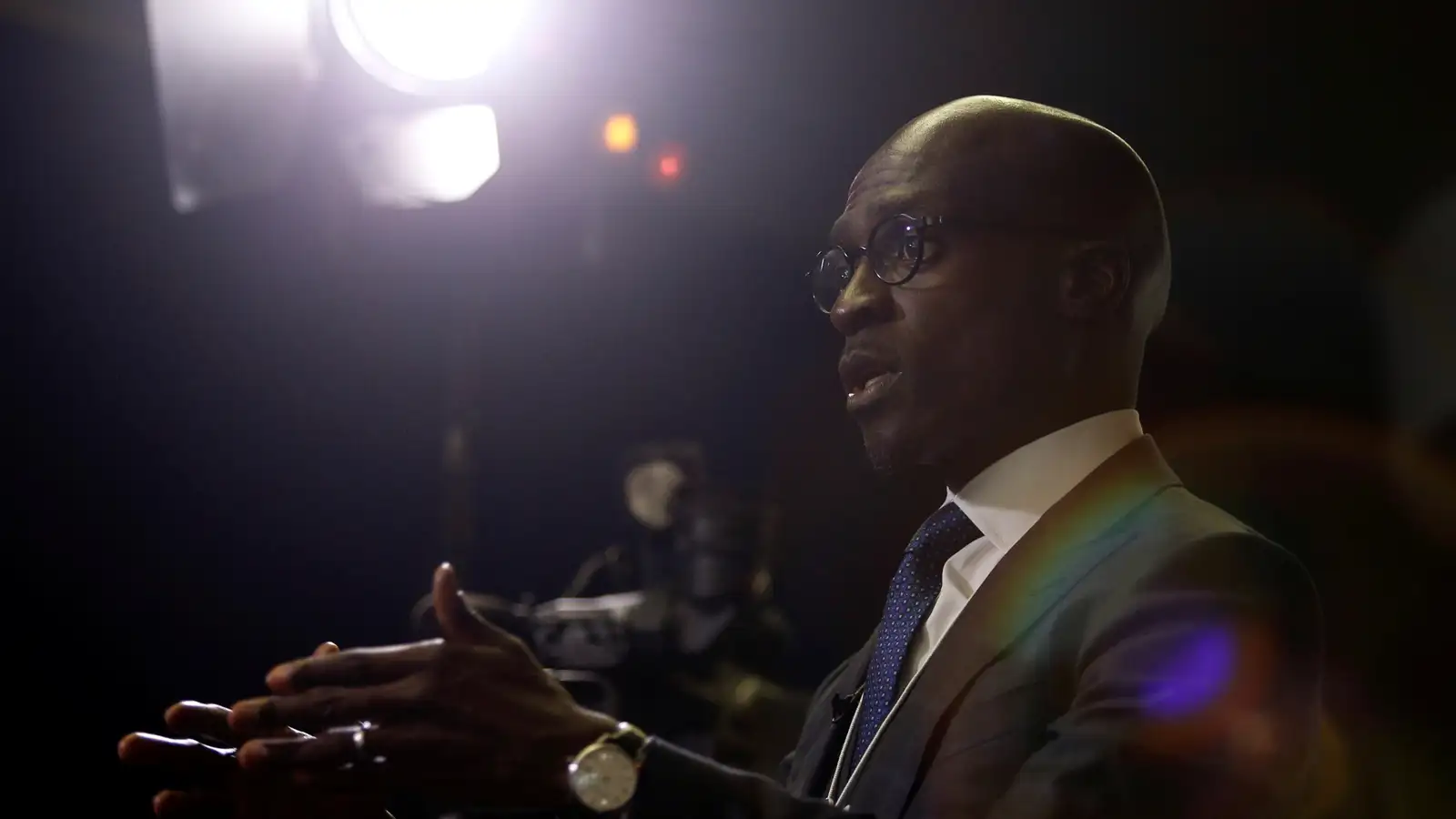With high energy and well-tailored suits, South Africa’s new finance minister, Malusi Gigaba, has worked hard to reassure anyone who cares to listen that the country’s economy is in good hands.

Gigaba has come up through the ranks of the ruling party and the government, sidestepping political and personal scandals while nabbing numerous best-dressed nods from the fashion press and his 145,000 Instagram followers. But in the last few days, the finance minister’s efforts to steady the economy are being thwarted by high unemployment, a recession, and political scandal.
At the relatively young age of 45, this is Gigaba’s third gig as minister: first at public enterprises, then in home affairs, and now in finance. He also happens to be the country’s fourth finance minister in less than two years. His latest portfolio was dogged with controversy from the beginning, with Gigaba getting the job after a controversial cabinet reshuffle.
Gigaba has come across as capable and conversant in the language of finance and economics, and he charmed audiences at the World Economic Forum’s Africa meeting last month, his first major public outing.
But Gigaba’s former party comrade turned opposition leader Julius Malema released documents on June 8 that he says prove that Gigaba, in his previous role as minister of public enterprises, intervened on behalf of a wealthy and politically connected family to secure lucrative contracts from the national rail company Transnet.
Double tap to see the pout get replaced by a frown 😬😳🙄
A post shared by Mr Gigabyte (@malusi_gigaba) on Mar 11, 2017 at 7:44am PST
The documents are part of a trove of emails that appear to offer concrete evidence that the Gupta family made their millions through manipulation of corrupt politicians. The emails are being released piecemeal, each week revealing how a different state-owned enterprise was “captured.”
“I myself have done no wrong,” Gigaba said during a televised press briefing in which he questioned the authenticity of the emails.
The police have begun an investigation into the email trove and the illegal patronage it allegedly illustrates, but it remains to be seen how far or high the investigation will go. Many, however, believe that this will lead to the end of Jacob Zuma’s presidency, which until now has been surprisingly immune to scandal.
Before Malema’s current crusade against alleged corruption, he too faced charges of malfeasance, as Gigaba’s spokesman has pointed out. In any case, Malema and his party say they plan to pursue criminal charges against Gigaba. Meanwhile, the Democratic Alliance opposition party has leveled corruption charges at Gigaba’s deputy, Sifiso Buthelezi, over state contracts awarded to his brother.
“Given Gigaba’s previous role at Public Enterprises, there is little ground for great optimism,” said Razia Khan, chief Africa economist with Standard Chartered, after watching Gigaba’s performance at the WEF.
Political strife is nothing new in South Africa, and a stronger economy may just have continued to function with it, perhaps even thrive. South Africa’s economy, however, is struggling, worsened by allegations of the looting of state coffers. Like his predecessor Pravin Gordhan, Gigaba has been unable to extract himself from the general discord.
Opposition parties have made criminal accusations against ANC officials before, with little effect beyond political theater, but South Africa’s economy is already being derailed by its political climate in ways that go beyond theatrics. Last quarter, ratings companies downgraded the country’s sovereign credit rating because political infighting had left the economy rudderless. Gigaba’s track record in government has done little to restore national and international confidence.
